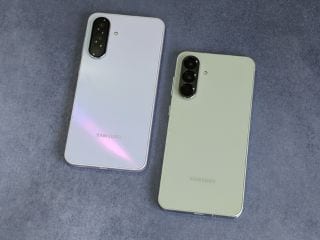- Home
- Telecom
- Telecom News
- Nokia, IIT Delhi to Use AI to Make Networks More Reliable
Nokia, IIT-Delhi to Use AI to Make Networks More Reliable

Nokia and the Indian Institute of Technology-Delhi (IIT-Delhi) have signed a Memorandum of Understanding (MoU) to use data science, analytics and Artificial Intelligence (AI) to make networks more efficient and reliable.
The collaboration will allow IIT-Delhi to leverage Nokia's technological leadership and expertise in communications networking to conduct research in these areas.
"New technologies require fresh thinking and working with the scholars of IIT-Delhi will allow us to push the boundaries of what is possible. The collaboration will help us to prepare for the future, for which skills in analytics and artificial intelligence are essential," Amit Dhingra, Vice President of Global Service Delivery at Nokia, said in a statement.
With networks becoming increasingly complex and data use growing exponentially, efficiency and quality-related challenges must be addressed pre-emptively to boost network performance and make services real-time, the company said.
Under the collaboration, IIT-Delhi research scholars from the applied mathematics, statistical and computer science fields will work with Nokia in India to develop software modules based on AI algorithms with machine learning, deep learning, and predictive analytics.
"Working with major technology firms like Nokia allows us to develop new capabilities in advanced technologies. The collaboration will provide crucial exposure to our students and enable them to put theoretical topics to practical use," added B.R. Mehta, Dean of R&D at IIT-Delhi.
The self-learning and pre-emptive capabilities will help Nokia's service delivery to be 5G ready.
Catch the latest from the Consumer Electronics Show on Gadgets 360, at our CES 2026 hub.
Related Stories
- Samsung Galaxy Unpacked 2025
- ChatGPT
- Redmi Note 14 Pro+
- iPhone 16
- Apple Vision Pro
- Oneplus 12
- OnePlus Nord CE 3 Lite 5G
- iPhone 13
- Xiaomi 14 Pro
- Oppo Find N3
- Tecno Spark Go (2023)
- Realme V30
- Best Phones Under 25000
- Samsung Galaxy S24 Series
- Cryptocurrency
- iQoo 12
- Samsung Galaxy S24 Ultra
- Giottus
- Samsung Galaxy Z Flip 5
- Apple 'Scary Fast'
- Housefull 5
- GoPro Hero 12 Black Review
- Invincible Season 2
- JioGlass
- HD Ready TV
- Laptop Under 50000
- Smartwatch Under 10000
- Latest Mobile Phones
- Compare Phones
- Honor Magic 8 RSR Porsche Design
- Honor Magic 8 Pro Air
- Infinix Note Edge
- Lava Blaze Duo 3
- Tecno Spark Go 3
- iQOO Z11 Turbo
- OPPO A6c
- Samsung Galaxy A07 5G
- Lenovo Yoga Slim 7x (2025)
- Lenovo Yoga Slim 7a
- Lenovo Idea Tab Plus
- Realme Pad 3
- Moto Watch
- Garmin Quatix 8 Pro
- Haier H5E Series
- Acerpure Nitro Z Series 100-inch QLED TV
- Asus ROG Ally
- Nintendo Switch Lite
- Haier 1.6 Ton 5 Star Inverter Split AC (HSU19G-MZAID5BN-INV)
- Haier 1.6 Ton 5 Star Inverter Split AC (HSU19G-MZAIM5BN-INV)







![[Sponsored] Haier C90 OLED TV | Dolby Vision IQ, 144Hz OLED and Google TV in Action](https://www.gadgets360.com/static/mobile/images/spacer.png)









